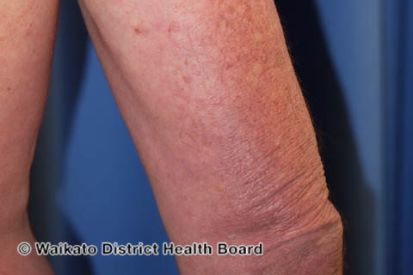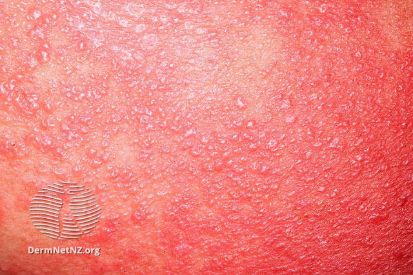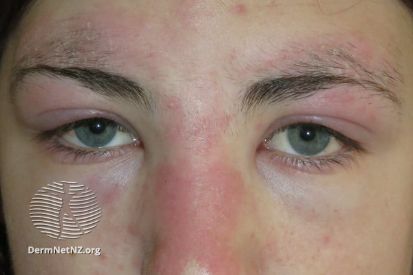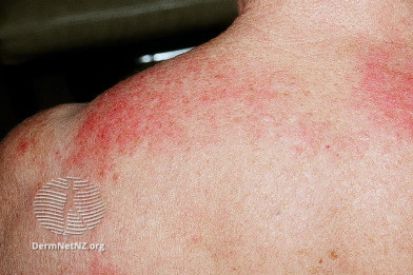Rashes
Partnering with a skin expert at The Dermatology & Skin Surgery Center at Creedmoor can provide you with tailored treatment options to address and prevent rashes. Discover more about rash symptoms and causes below, and schedule a skin check to embark on your journey to healthy skin with The Dermatology & Skin Surgery Center at Creedmoor.
Examples of Rashes




What are the Symptoms of Rashes?
- Redness: Rashes often display a reddish hue on the affected skin due to increased blood flow or inflammation.
- Itching: Itchiness is a common symptom accompanying rashes, causing discomfort and a desire to scratch the affected area.
- Bumps or blisters: Rashes may present as raised bumps or fluid-filled blisters on the skin.
- Dry or scaly skin: Some rashes manifest with dry, flaky, or scaly patches, causing roughness or peeling of the skin.
What Causes a Rash?
- Rashes can be caused by various factors, including allergic reactions to substances like certain foods or medications, skin contact with irritants, infections such as fungal or bacterial, autoimmune conditions, or underlying medical conditions.
- Environmental factors, like heat or certain fabrics, may also contribute.
- Identifying the specific cause of a rash often requires careful examination by your dermatologist in order to determine treatment.
How to Prevent a Rash
Partnering with a skin expert is the best way to determine your custom skincare routine. Scheduling regular skin checks with your dermatologist go a long way in prevention.
FAQs about Rashes
Rashes can have various causes, including allergies, infections, or skin conditions. Your body might be reacting to something it came into contact with, like a new lotion or plant, or it could be a sign of an underlying issue.
Certain skincare products, like those containing harsh chemicals or fragrances, can trigger rashes. Opting for gentle, hypoallergenic products can reduce the risk. A dermatologist can recommend products tailored to your skin's needs.
Yes, there are many different types of rashes, including eczema, contact dermatitis, heat rash, and psoriasis, each with its own causes and symptoms.
Scratching a rash can worsen the irritation and potentially lead to infection. Over-the-counter anti-itch creams, cool compresses, and keeping the affected area moisturized can help relieve itching. If persistent, consult with a dermatologist for proper guidance.
It depends on the type of rash. Some rashes benefit from being kept covered to prevent further irritation, while others may heal better when exposed to air. Your dermatologist can advise on the best approach based on the specific rash.
You should see a dermatology provider if your rash is severe, persistent, or accompanied by other symptoms such as fever, pain, or swelling. It's also important to seek medical attention if you are unsure of the cause of your rash.
From Our QualDerm Family of Brands: Inflammatory Skin Conditions
How to Treat Rashes
If you're dealing with a rash, dermatological guidance is key for the right diagnosis to help you find an effective, healthy skin treatment plan. Schedule your appointment today.
Featured Products
Check your local office for current stock!
Check your local office for current stock!
